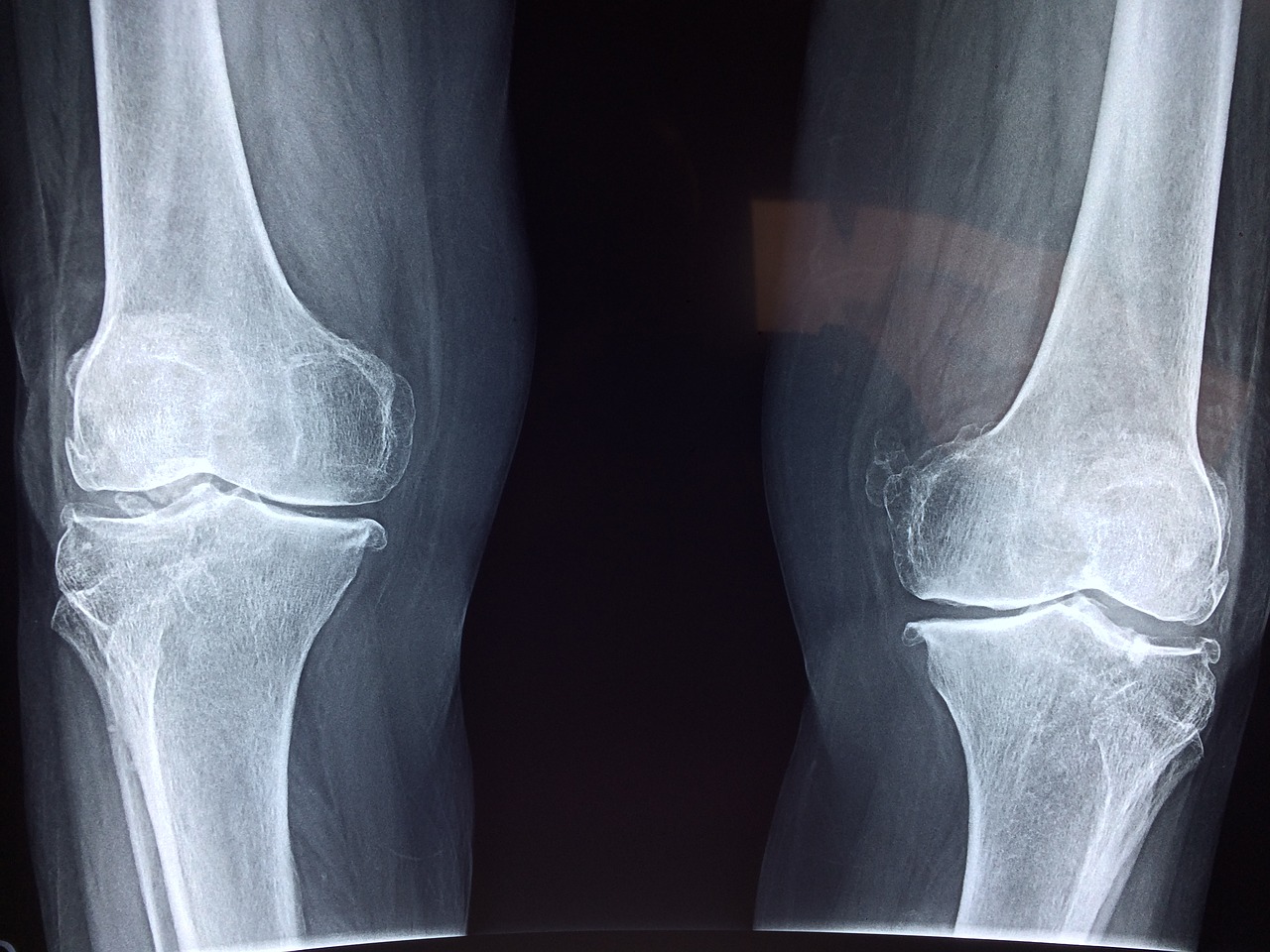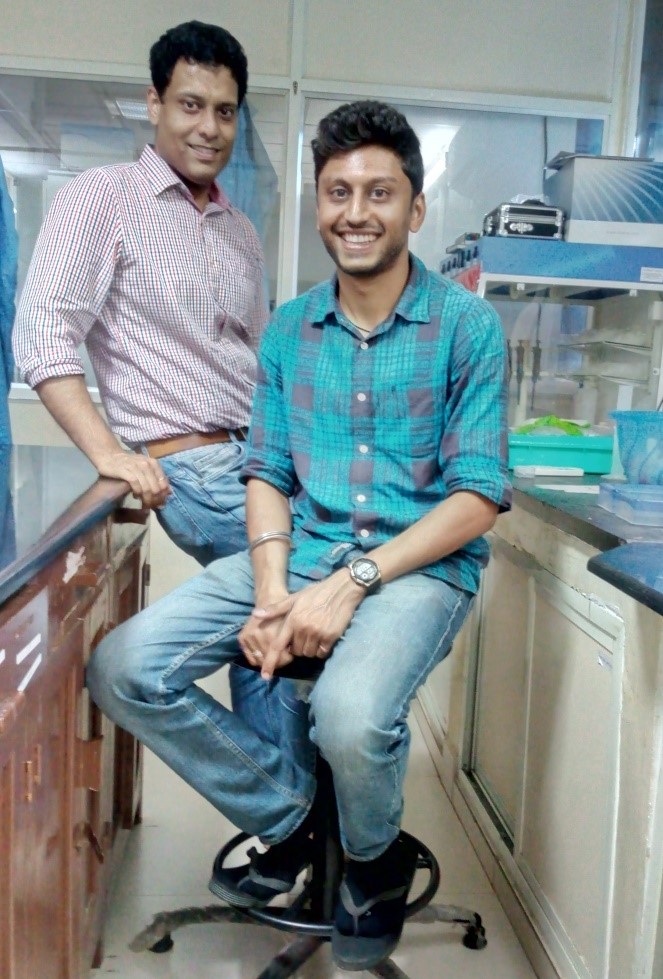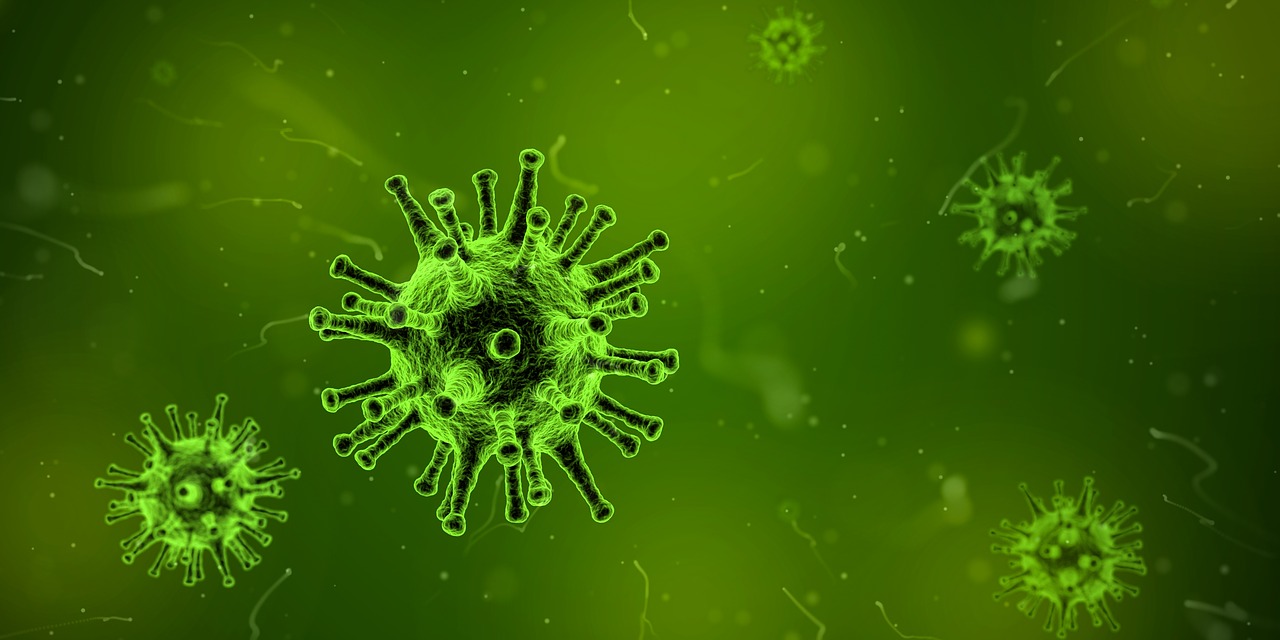
New Approach Can Make Better Titanium Alloy for Implants
- News
- 2.3K
Researchers at the Indian Institute of Science (IISc) in Bengaluru have proposed a new approach for developing orthopedic implants with better ability to bond with the bone.
Currently, orthopedic implants for knee and hip arthroplasty are made of metallic alloys that contain potentially toxic elements like aluminum, vanadium, and nickel. They are also much stiffer than human bone and don’t bond well with the bone.

Image: Kaushik Chatterjee and Sumit Bahl (Left to Right)
The research team at IISc has developed a strategy to increase the bioactivity of titanium alloy consisting of non-toxic elements – titanium, niobium, and tin, through surface severe plastic deformation (metalworking techniques). This approach could help produce new titanium alloys that are less stiff compared to currently used. The researchers have published a report on their work in the journal ‘ACS Biomaterials Science & Engineering.’
The researchers used a technique known as surface mechanical attrition treatment (SMAT) to boost bioactivity of alloy’s surface. In this technique, the metal alloy sheet is placed inside a chamber containing hard steel balls typically used in ball bearings. The chamber is vibrated using electromechanical means because of which the balls start to move randomly at high speed inside the chamber.
“The SMAT treatment deforms the surface of the metal sheet, which leads to an increase in surface hardness, modification in surface roughness and surface wettability and its chemistry. These modifications are responsible for increasing biological activity of the metal,” explained Dr. Kaushik Chatterjee, who led the research, while speaking to India Science Wire.
SMAT can improve biomechanical properties like fatigue and wear resistance, added Dr. Sumit Bahl, lead author of the study. The equipment used for the experiment was developed in collaboration with a Bengaluru company.
“The study has shown that traditional metal processing techniques can be still used to improve the cell-material interaction of new class of titanium alloys,” commented Dr. T.S. Sampath Kumar of Indian Institute of Technology, Madras, who was not connected with the study.
The research team included Sai Rama Krishna Meka, Sumit Bahl, Satyam Suwas, and Kaushik Chatterjee. The study was supported by the Science and Engineering Research Board (SERB). (India Science Wire)
By Ratneshwar Thakur
Journal Article
If you liked this article, then please subscribe to our YouTube Channel for the latest Science & Tech news. You can also find us on Twitter & Facebook.


